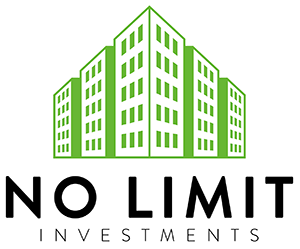How Can You Recognize a Great Real Estate Deal Early?
Spotting profitable real estate deals begins with understanding the fundamentals of property valuation and market behavior. Investors who can evaluate a property’s worth, both current and potential, gain a major advantage. The best real estate deals share three traits: a good price, solid growth potential, and manageable risk.
Key indicators of a great deal include:
- Below-market purchase price, typically 10–20 percent lower than comparable properties.
- Strong location factors, such as proximity to schools, business hubs, or infrastructure.
- High rental demand, ensuring steady cash flow.
- Potential for improvement or redevelopment, which increases after-repair value (ARV).
Investors often rely on comparative market analysis (CMA) to determine if a property is under- or over-valued. Public databases and local government assessment tools provide useful benchmarks for fair market value (U.S. Census Bureau, 2024).
Why Is Market Research Crucial Before Making a Real Estate Investment?
Market research prevents costly mistakes. It helps identify whether an area’s property values are appreciating, stagnating, or declining. Understanding local economic trends—such as job growth, infrastructure development, and zoning changes, shapes long-term success.
Smart investors analyze:
- Median home prices and sales trends over the last 12–24 months.
- Vacancy rates and population migration patterns.
- Rental yield averages across comparable properties.
- Local government plans that might affect property taxes or land use.
Investors who incorporate these factors can anticipate neighborhood shifts before they occur. For example, early recognition of a city’s redevelopment initiative may indicate rising property values within a few years.
What Financing Options Help Investors Secure Real Estate Deals Efficiently?
Financing determines how quickly and effectively an investor can act when opportunities arise. Choosing the right funding strategy ensures both short-term liquidity and long-term growth.
No Limit Investments offers a range of real estate financing solutions tailored for investors, including:
- Fix & Flip Loans – designed for buyers who renovate and sell properties quickly.
- Buy & Hold Mortgages – ideal for investors focused on generating long-term rental income.
- BRRRR Financing (Buy, Rehab, Rent, Refinance, Repeat) – helps scale portfolios strategically.
- DSCR Loans (Debt-Service Coverage Ratio) – based on a property’s income rather than personal earnings, ideal for investors with multiple holdings.
- New Construction Loans – suited for ground-up developments and value-add projects.
Having access to flexible loan structures allows investors to move quickly when great deals appear, without tying up all their capital.
How Do You Evaluate the Profitability of a Real Estate Deal?
A promising property can turn into a financial setback if profitability is not carefully analyzed. Smart investors calculate several financial metrics before committing to a purchase:
- Cash Flow: Net rental income after deducting expenses such as mortgage, insurance, and maintenance.
- Cap Rate: Annual net income divided by the property’s purchase price.
- Return on Investment (ROI): Profit earned relative to the amount invested.
- After-Repair Value (ARV): Estimated market value after renovations or upgrades.
- Loan-to-Value (LTV) Ratio: Indicates the lender’s risk; lower ratios often lead to better financing terms.
These calculations reveal whether a deal aligns with the investor’s financial goals. Using data-driven tools and guidance from credit and debt advisory professionals, like those available through No Limit Investments, can refine this analysis.
What Role Does Negotiation Play in Securing Better Real Estate Deals?
Negotiation skills can dramatically improve returns. Even small adjustments in purchase price, closing costs, or contingencies may significantly affect profitability. Investors who research comparable sales and understand seller motivations have stronger leverage.
Key negotiation tips include:
- Know your walk-away price, do not exceed the value justified by data.
- Offer flexibility in closing dates or terms to appeal to sellers.
- Request seller concessions (repairs, appliances, or closing credits) where appropriate.
- Stay professional and patient, emotion-driven decisions often reduce profit margins.
Effective negotiators combine confidence with data, ensuring they pay for potential rather than hype.
How Can Renovation and Value-Add Improvements Maximize Profits?
Adding value is one of the most reliable ways to increase profit margins in real estate deals. Improvements should target the most impactful upgrades rather than expensive overhauls.
High-ROI renovations typically include:
- Kitchen and bathroom updates for rental and resale appeal.
- Energy-efficient upgrades, such as new windows or HVAC systems.
- Curb-appeal improvements, including landscaping and exterior painting.
- Additional units or accessory dwelling units (ADUs), where zoning allows.
Financing through fix & flip loans or BRRRR financing makes these upgrades achievable without draining liquidity. When executed strategically, the after-repair value can far exceed renovation costs, unlocking greater equity for refinancing or resale.
Why Should Investors Build Long-Term Portfolios Instead of Flipping Alone?
While flipping can generate quick profits, building a sustainable portfolio ensures wealth stability. A balanced strategy may include both short-term and long-term assets.
The Buy & Hold approach provides consistent income through rental payments while allowing properties to appreciate over time. Investors may then tap into cash-out refinance options to access equity and reinvest in new properties.
Portfolio-based financing such as DSCR loans and business credit facilities from No Limit Investments enables scaling without relying solely on personal income.
Benefits of long-term portfolio growth:
- Steady cash flow and equity buildup.
- Tax advantages through depreciation and 1031 exchanges.
- Financial resilience against short-term market fluctuations.
- Opportunities to leverage properties for additional investments.
Building a diversified portfolio promotes financial independence while minimizing risk exposure.
How Can Professional Guidance Strengthen Your Real Estate Strategy?
Successful investors rarely act alone. Access to expert advice in financing, risk management, and property development accelerates success while avoiding pitfalls.
No Limit Investments provides credit & debt advisory and growth & development services that support investors at every stage. Their expertise helps clients:
- Improve credit profiles for better loan approval rates.
- Structure deals that balance short-term profit with long-term stability.
- Identify high-yield properties based on real-time market analysis.
- Plan sustainable expansion strategies within realistic risk levels.
Working with trusted advisors allows investors to move confidently in a competitive market, maximizing opportunities that others overlook.
What Are the Risks of Real Estate Deals, and How Can You Mitigate Them?
All investments carry risk, but informed planning minimizes exposure. Common challenges include market downturns, unexpected maintenance costs, and financing complications. To manage these risks effectively:
- Diversify across property types (residential, commercial, or mixed-use).
- Maintain sufficient reserves for repairs and vacancies.
- Use conservative leverage, keeping loan-to-value ratios manageable.
- Stay updated on local regulations and landlord-tenant laws.
- Work with experienced lenders who understand investor needs.
By combining risk awareness with strategic financing, investors can maintain profitability even during uncertain economic cycles.
Why Should You Partner with No Limit Investments for Your Next Real Estate Deal?

For investors aiming to build wealth through real estate, securing the right financial partner makes all the difference. No Limit Investments provides tailored funding programs that help both new and seasoned investors achieve their goals.
Their services include:
- Fix & Flip Loans
- Buy & Hold Mortgages
- BRRRR Financing
- Cash Out Refinance
- DSCR Loans
- New Construction Loans
- Real Estate Financing Solutions
- Business Credit Facilities
- Credit & Debt Advisory
- Growth & Development Services
Each product is built for flexibility, fast approval, and investor-friendly terms, allowing clients to focus on identifying and closing profitable real estate deals.
Visit No Limit Investments to explore financing solutions that empower your next investment. Whether you are flipping, holding, or developing, their team can help you scale smarter and faster.
Final Thoughts
Mastering the art of identifying and capitalizing on real estate deals requires more than luck, it demands research, financial strategy, and trusted partnerships. Investors who analyze market data, choose suitable financing, and work with professionals position themselves for sustainable success. With support from No Limit Investments, every deal becomes a stepping-stone toward long-term financial freedom.
Works Cited
U.S. Census Bureau. Housing Vacancies and Homeownership (CPS/HVS). 2024. https://www.census.gov/housing/hvs/
Federal Reserve Board. Consumer Credit – G.19 Release. 2024. https://www.federalreserve.gov/releases/g19/current/
National Association of Realtors. Real Estate Market Trends. 2024. https://www.nar.realtor/research-and-statistics
U.S. Department of Housing and Urban Development (HUD). Office of Policy Development and Research (PD&R). 2024. https://www.huduser.gov/portal/home.html
Frequently Asked Questions:
- What defines a good real estate deal?
A good real estate deal combines below-market pricing, high rental demand, and strong appreciation potential. It should produce steady cash flow and align with your investment goals.
- How can I finance my first investment property?
You can start with investor-focused loans such as Fix & Flip Loans, Buy & Hold Mortgages, or BRRRR Financing offered by No Limit Investments. These options provide flexible terms and quick access to capital.
- What is the best way to analyze a property’s profitability?
Evaluate cash flow, cap rate, ROI, and after-repair value (ARV). These metrics help you understand potential earnings and risks before purchasing a property.
- How can I minimize risks when investing in real estate?
Diversify your portfolio, maintain cash reserves, and avoid over-leveraging. Partnering with reliable lenders like No Limit Investments can help manage financial risks effectively.
- Why is professional guidance important in real estate investing?
Expert advisors provide insight on financing, deal structuring, and portfolio growth. No Limit Investments offers credit and debt advisory to help you make informed decisions.







